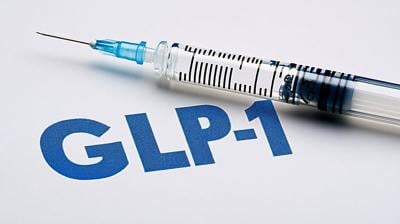Key Takeaways
More folks are using weight-loss drugs to drop pounds prior to bariatric surgery
GLP-1 drug use rose 16-fold among patients about to undergo weight-loss surgery
This represents a shift in how weight-loss patients view their treatment options, researchers said
WEDNESDAY, Oct. 8, 2025 (HealthDay News) — Many more folks fighting excess weight are using weight-loss drugs like Ozempic or Zepbound to cut pounds before undergoing bariatric surgery, a new study says.
The use of these drugs before surgery rose 16-fold among patients preparing for weight-loss surgery, researchers reported Sunday at the American College of Surgeons’ annual meeting in Chicago.
“While patients previously believed they had to choose between GLP-1 receptor agonists and surgery, we’re now seeing that people are using both,” said lead researcher Dr. Stefanie Rohde, a general surgery resident at the Ohio State University Wexner Medical Center in Columbus.
“We know that patients can use GLP-1s after bariatric surgery to amplify their weight loss,” Rohde said in a news release. “But all of this is still very new in terms of how to manage patients effectively.”
For the study, researchers looked at the use of semaglutide (Ozempic, Wegovy) and tirzepatide (Zepbound, Mounjaro) among patients undergoing weight-loss surgery, analyzing nearly 365,000 patients between 2018 and 2024.
The proportion of patients who received at least one GLP-1 prescription in the year leading up to their surgery exploded to more than 29% in the fourth quarter of 2024 from just under 2% in the first quarter of 2020, results show.
Among patients without type 2 diabetes, GLP-1 drug use before weight-loss surgery increased to 23% in the fourth quarter of 2024 from 2% in the first quarter of 2020, researchers found.
GLP-1 use among patients with type 2 diabetes was even higher, rising to 45% from 11% during the same period.
The median age of the patients was 43, and they had a median preoperative body mass index (BMI) of 46. A BMI of 40 or greater is considered severe obesity by the U.S. Centers for Disease Control and Prevention. (BMI is an estimate of body fat based on height and weight.)
The results indicate a shift in how weight-loss surgery candidates are viewing their treatment options, researchers said.
“There’s no one-size-fits-all approach to treating obesity, metabolic syndrome or diabetes and its related conditions,” senior researcher Dr. Patrick Sweigert, a bariatric surgeon at the Ohio State University Wexner Medical Center, said in a news release.
“We’re entering a new world of multidisciplinary care pathways and a new frontier of weight management that is important for patients and surgeons to think about,” Sweigert added.
Findings presented at medical meetings should be considered preliminary until published in a peer-reviewed journal.
More information
John Hopkins Bloomberg School of Public Health has more on GLP-1 drug use among weight-loss surgery patients.
SOURCE: American College of Surgeons, news release, Oct. 3, 2025
What This Means For You
People with obesity should talk to their doctor about their options regarding weight-loss drugs and bariatric surgery.





















(0) comments
Welcome to the discussion.
Log In
Keep it Clean. Please avoid obscene, vulgar, lewd, racist or sexually-oriented language.
PLEASE TURN OFF YOUR CAPS LOCK.
Don't Threaten. Threats of harming another person will not be tolerated.
Be Truthful. Don't knowingly lie about anyone or anything.
Be Nice. No racism, sexism or any sort of -ism that is degrading to another person.
Be Proactive. Use the 'Report' link on each comment to let us know of abusive posts.
Share with Us. We'd love to hear eyewitness accounts, the history behind an article.